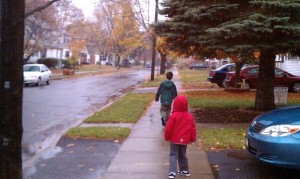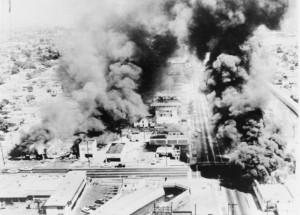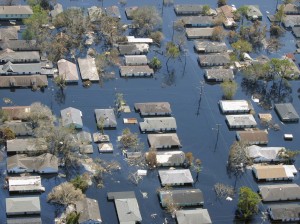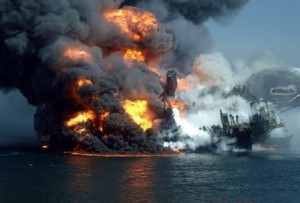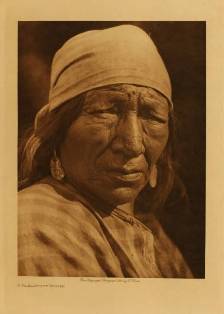
A few months back my first book of poetry was published. It includes a poem called “Charity,†which gives a snapshot of a nurse in New Orleans as Katrina approached that city five years ago. When my book came out, I read that poem at a gathering of poets who had work published by the same press.
Later in the day, I overheard a poet from New Orleans talking about the fact that several non-NOLA poets had read Katrina or New Orleans poems, and this poet wasn’t particularly happy about that. A couple weeks later, at another poetry event, this poet mentioned that many New Orleans writers had struggled mightily after Katrina while non-native writers were publishing books and poems and essays about Katrina and New Orleans. The poet suggested that this was a form of theft – the non-NOLA writers were taking money and opportunity away from New Orleans writers.
I said on that day that I thought all artists – and all people, for that matter – had a right to make art about the things they feel strongly about. In my case, although I’ve sold some of my books, the total number is so small that it’s very difficult for me to believe that my tiny book with one Katrina poem is taking food off the table of anyone from New Orleans.
I can’t think of any public event that has had as deep an impact on me as Katrina and the subsequent engineering failures that flooded New Orleans. (Please note that I although I use “Katrina†as shorthand for the disaster, I’m fully aware that it wasn’t the storm that caused the flooding – it was the failure of the man-made structures that were installed to protect the city.)
I did a lot of crying at the end of August and the beginning of September in 2005. Like many Americans, I spent hours in front of the TV trying to understand what was happening in New Orleans. I also spent a lot of time on the phone with my friend Satoru Ohashi, a trumpeter I’d known since I was an exchange student in Japan in 1991-92. Satoru lived in New Orleans and was scheduled to start a graduate program in jazz performance in the fall as part of the Louis Armstrong Quintet at the University of New Orleans. Now he was staying with a family member of the founder of the Dirty Dozen Brass Band several hours north of New Orleans and trying to figure out what to do next. UNO wasn’t going to be opening up anytime soon and he needed to be in school to stay in this country. I was living in Rochester, NY, at the time and was working with friends on the faculty at the Eastman School of Music there to see whether they could help him.
A few days after Katrina hit, Rochester held its annual Labor Day parade. I worked for a labor union at the time that had many members in the hotels and casinos of New Orleans. I printed up thousands of flyers with information about the union’s Katrina relief fund and passed those flyers out (with the help of a fellow employee) to everyone in the parade and to the crowds along the route. It wasn’t much, but it was something.
I was a political radical long before Katrina, but the government response to the disaster was still worse than I could have imagined. As I watched our leaders leave an entire city to die, I felt as though the final veil had been pulled from my eyes and I finally saw this country for what it had become. Yes, millions of people contributed money to the relief effort, and thousands traveled to New Orleans to assist in the relief and recovery efforts. But as the waters rose and dead bodies floated through the streets, our government seemed unable and unwilling to help its own people. Sure, we didn’t care much for the civilian casualties we were inflicting in Afghanistan and Iraq, but our own citizens? How could this be happening?
Where were you when MLK or JFK or RFK were assassinated? When Armstrong walked on the moon? When Pearl Harbor was attacked? Those are the questions that have defined generations of Americans. For some people, 9/11 is the contemporary moment that changed everything. Certainly our nation has never been the same, and our downward slide shows no signs of halting anytime soon.
For me, though, Katrina is the defining public moment in my life. It is the clear demarcation line before which I had some shreds of confidence in our government’s unwillingness to let its own people perish on their own soil. After Katrina, that confidence – tenuous as it had been – was gone. I felt as if the ground beneath my feet had shifted and I couldn’t quite catch my balance.
Five years later I wrote “Charity†and included it in a book of poems that otherwise have nothing to do with Katrina. The poem was also published (under a different title) in Blue Collar Review, a journal of working-class literature. I’ve also interviewed musicians from New Orleans on The Jazz Session, my online jazz interview show. Sometimes those interviews were explicitly about the storm and its aftermath (such as my interviews with Terence Blanchard and Andrew Lamb). At other times, what happened in August 2005 was present in the interviews or mentioned, but not the main topic of conversation. For the first two years of The Jazz Session, I featured a “Cause of the Month†and encouraged listeners to donate. Several of those causes were charities in New Orleans such as Musicians Village or the Tipitina Foundation.
As we commemorate the fifth anniversary of the storm and the human failures that devastated a city I’ve never set foot in, I still grapple with my place in the story that is New Orleans. I worry about being a cultural tourist, as suggested by the poet I mentioned above. But deep inside I know that’s not true. I don’t feel the way I feel because I want to make a buck or because it’s trendy to like New Orleans. I feel this way because what happened there happened to all of us. Because of all of us. We’re all New Orleanians now. And it isn’t over yet.


